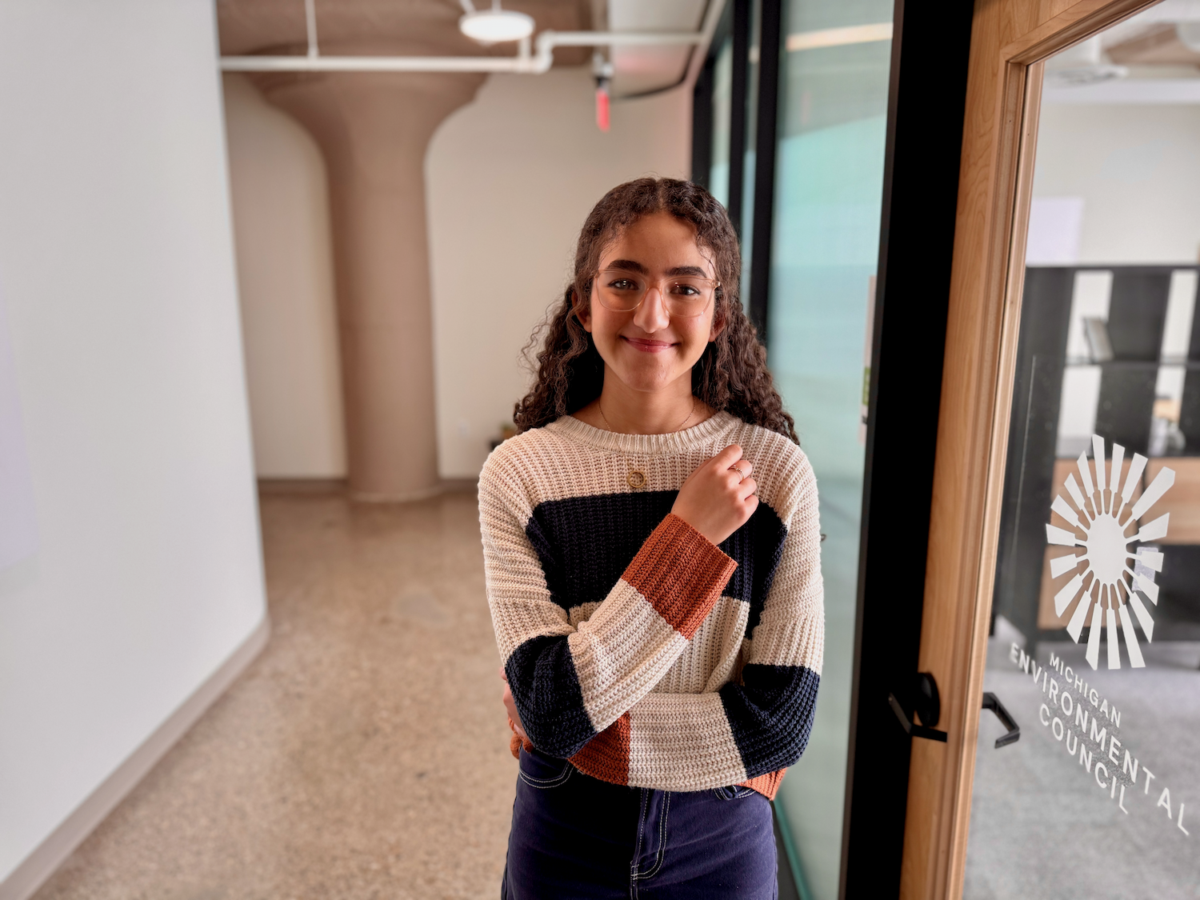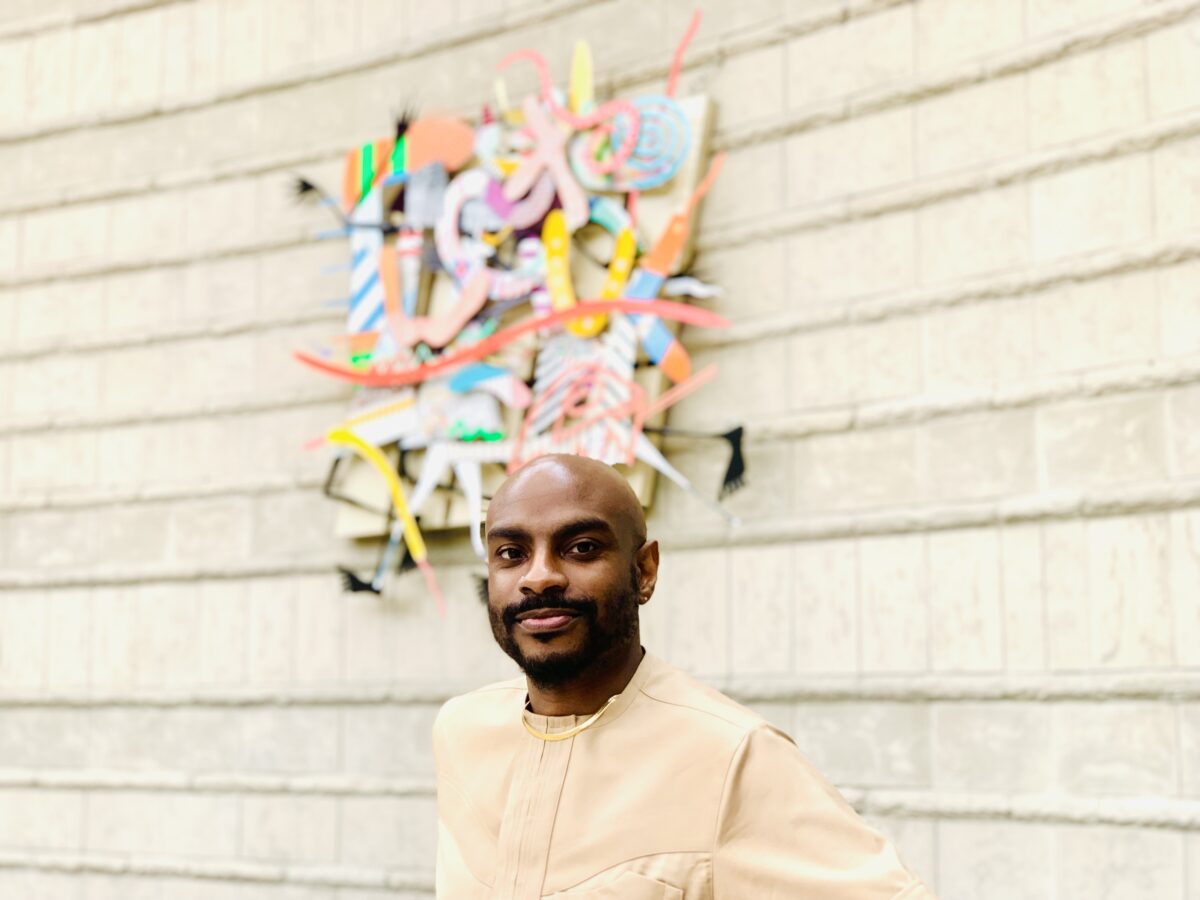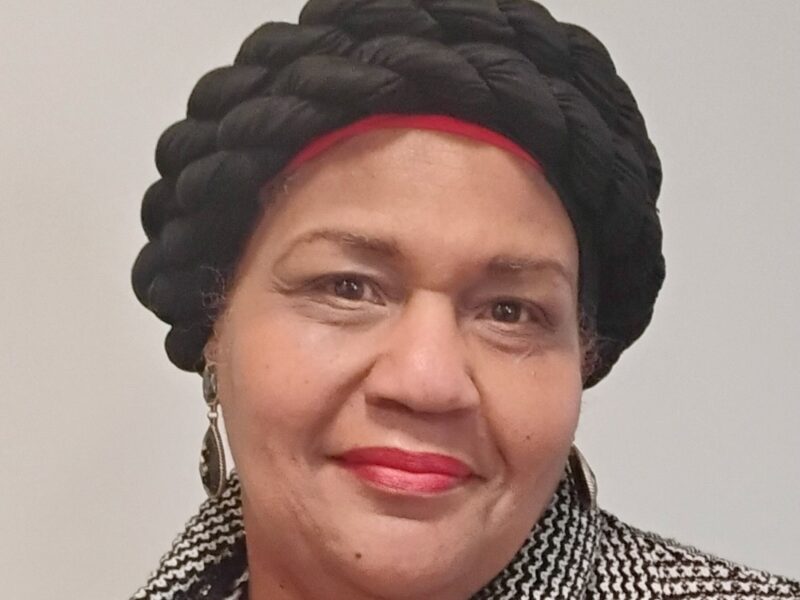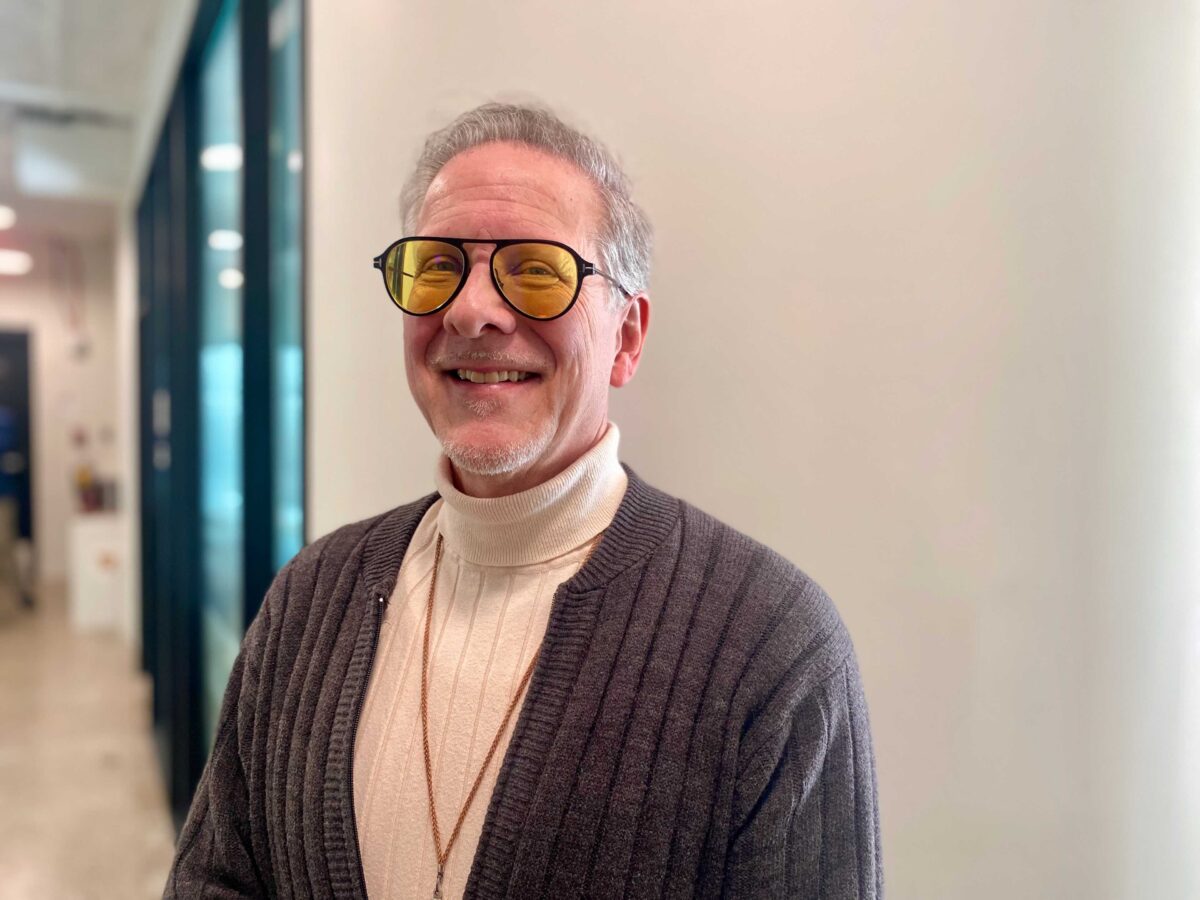Overview:
-Yara Reda, senior at Dearborn High School and Arab American, has spent nine years in Michigan after formative years in Lebanon.
-As an environmental advocate, she highlights the critical need for environmental justice.
-Reda aims to study political science and possibly environmental law in college.
This story is published as part of Planet Detroit’s 2025 Spring Neighborhood Reporting Lab, supported by The Kresge Foundation, to train community-based writers in profile writing. This year’s participants will focus on highlighting grassroots leaders driving positive change in Metro Detroit.
Yara Reda is a senior at Dearborn High School, a proud Arab American who lives in Michigan, but is deeply connected to her foundational years in Lebanon. She shares her journey as a young environmental advocate by highlighting pivotal moments that led her to considering a career in environmental law and political science. Reda is an alumna of the Environmental Health Research to Action Academy and plans on beginning college in the fall.
Can you share a little about yourself and your background?
I always say this, on the outside, I’m this senior in high school, Arab American girl. I’ve lived in Michigan for nine years and previously lived in Lebanon but was born in New York. But on the inside, I’m an environmental advocate, a leader, someone who cares, someone who is curious, and really cares about her community so much that she wants to make powerful and impactful change.
Can you share more about your upbringing and family?
Both of my parents were born in Lebanon, and then they came to America around 1997. I was born in New York but we started to move to Lebanon because family was there and we wanted to be around family. My dad had a job in Lebanon, so we were living comfortably. I lived in Lebanon for about five years. I always like to say that those were the best years of my life, because that is when I was young. I didn’t really have a care in the world and I didn’t really understand much, I was living the life. When most of our family moved to Michigan, we decided to go with them. So you could say I’m a first generation Arab American.
You’re an environmental advocate and leader, how did you get involved in environmental advocacy?
I was a sophomore in high school when I joined the EHRA Academy, which stands for Environmental Health Research to Action Academy. EHRA Academy was founded by two amazing professors at University of Michigan Dearborn, Dr. Carmel Price and Dr. Natalie Sampson. My sister is a proud environmental advocate as well, and was in this program and she loved it, so she encouraged me to join.
The first day in the program, we did a “Toxic Tour.” So I’m on this bus, I’m looking around all these neighborhoods, I had music in my ears and we were driving around, I was relaxed. But then we finally got to our destination, which was in a part of Southwest Detroit next to a Marathon factory. The first thing I noticed when we got there was that I was having trouble breathing. I couldn’t believe people constantly breathe this air. My first thought was like, “oh my God. I feel like I can’t breathe.” I guess this was the first moment it clicked in my head and I started to question, “what is going on [in the environment]?”
I had to start paying closer attention to what was going on around me, environmental issues specifically. This is the spark that first introduced me, and then throughout the entire program, I was even more curious. I got to know people. I got to know the founders. I also had a chance to work with them. I wrote research and went to events where we presented this research in front of different university professors or faculty members.
Can you share more about the environmental research you worked on during your time in ERA Academy?
The research was about EHRA Academy members and past participants, and we asked them “based on everything that you learned, how have you applied that to what you do now?” We saw people who either did simple, important stuff like protests or donations. And then there are some people who have dedicated their entire careers into going into environmental justice, which is amazing. And then we kind of got all that research and presented the idea, showing people that environmental justice and environmental advocacy can influence them into actually going into these types of careers and advocacy in general. It was so beautiful to see the impact the academy was having.
What would you like to do with this knowledge and experience? What are your next steps?
So I am going to college, in a couple months, I don’t really know where. Continuing my advocacy journey, whether it be creating a new club, maybe interning at an environmental law center, or getting into policy and introducing legislation. These are all dreams, but they need work, obviously. For the future, who knows what I might go into, but hopefully it’s something as impactful and meaningful as what I’m doing right now.
I’m thinking about going into political science. That’s where I want to go, mainly law, possibly environmental law. I loved learning about government, when I was in my government classes, and so I thought that political science was perfect because I’m not scared to really go out there and introduce myself.
What inspired you to become a Planet Detroit Neighborhood Reporter?
As a high school student juggling academics, work, and leadership, I’ve always been intrigued by stories of resilience. I understand the importance of giving voice to issues that have to be heard. The Planet Detroit Neighborhood Reporting Lab spoke to me mainly because it brings up underrepresented and underreported voices. They talk about environmental justice, public health, and community-driven solutions. Overall, journalism isn’t just about reporting facts – it’s storytelling, it’s advocacy, and it’s making a difference. I hope to bring light to the struggles that are happening in my community and in my neighborhoods, as I’ve had to do and speak up so that real change can occur.
MORE FROM THE NEIGHBORHOOD REPORTING LAB
Tommie Obioha grew up in a bicultural Detroit household. His journey led to community development and journalism.
Tommie Obioha, a first-generation Nigerian American, leverages his community development work to empower Detroit residents. Meet Planet Detroit’s 2025 Neighborhood Reporters in this Q&A series, written by Neighborhood Reporters.
Journalism is Sonja Stuckey’s first love. Detroit Documenters gave her a second chance at writing.
Sonja Stuckey, once a budding journalist and later an early childhood educator, has rekindled her passion for writing. Meet Planet Detroit’s 2025 Neighborhood Reporters in this Q&A series, written by Neighborhood Reporters.
Perry Sylvester is a Detroit advocate. Here’s how he came to love the Motor City.
Perry Sylvester, a Utica native, champions Detroit’s future through community organizations, advocating for a city that residents can proudly call home.





